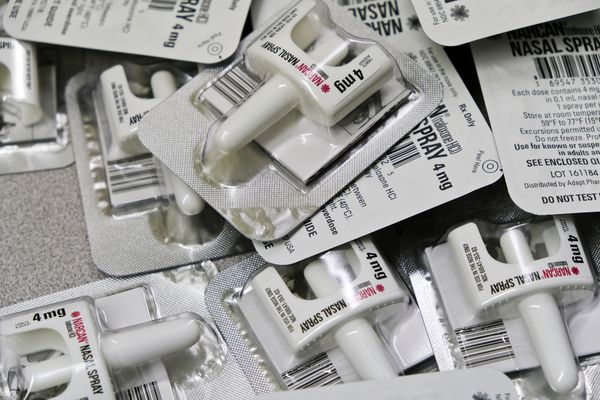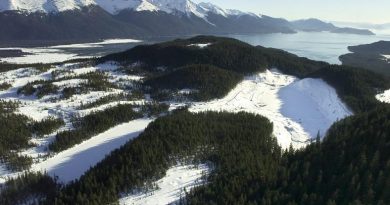Alaska governor declares opioid abuse public health disaster

Gov. Bill Walker issued an order Tuesday officially declaring the state’s opioid crisis a public health disaster.
The disaster declaration was designed to create a legal basis for the state to issue a medical “standing order” that allows community groups, law enforcement and members of the public to dispense and administer naloxone, an anti-overdose medication, said Dr. Jay Butler, Alaska’s chief medical officer.
Alaska used a $5 million federal grant on naloxone kits it is now distributing through a program run by the state Division of Public Health. The medical standing order was issued Tuesday, Butler said.
“It seems like a bit of an unorthodox approach, but other states have used similar mechanisms,” said Butler.
Butler, who has a background in infectious disease, said he thought it was the first time the state had used a disaster declaration to respond to a public health crisis.
The opioid order is the 11th disaster declaration Walker has issued. Others include a December storm in Western Alaska, landslides in Sitka, flooding on the Dalton Highway and a washateria fire in Alatna.
Declaring opioid abuse a public health disaster usually reserved for events like floods, earthquakes and fires holds extra rhetorical weight, said Butler.
“It’s a great way to begin framing the response to this epidemic.”
The disaster declaration shouldn’t cost the state any additional money, according to supporting materials released with the declaration.
Growing epidemic
Butler, an infectious disease specialist, said he is cautious about using the term “epidemic.” But he says it’s appropriate in talking about opioid abuse in Alaska.
Nationally, heroin abuse began to rise about 15 years ago, according to Butler. Prescription painkiller deaths increased in Alaska about a decade ago. Heroin hit hard starting five or six years ago: The declaration says the number of heroin-associated deaths in Alaska quadrupled between 2009 and 2015.
The epidemic has changed, but the wave hasn’t crested yet. In the past two years, treacherous painkillers like fentanyl have become more prominent in the state, he said. And most recently, novel lab-made forms of synthetic opioids have appeared.
The declaration “comes in response to the growing number of overdoses attributed to opioid abuse and the evidence that highly dangerous synthetic opioids have made their way into Alaska.”
“It’s hard to know what’s going to come next,” he said.
A letter to legislators signed by Walker says emergency responders in communities from Juneau to Fairbanks have been “overwhelmed” with opioid overdoses.
A temporary solution
Alaska is not the only state to declare opioid abuse a disaster.
In November, Virginia’s governor issued a similar declaration.
Butler said the disaster declaration is only a temporary solution to getting anti-overdose drugs to the public.
“This is a short period of time. If we continue for a longer period, we’ll probably have to work with the Legislature,” Butler said.
Clearly, getting anti-overdose drugs to more people is only one part of responding to opioid abuse, Butler said.
More Alaskans still die of alcohol-related diseases than opioid abuse.
“We need to move beyond molecule-specific responses to look more broadly at how we treat addictions.”
Related stories from around the North:
Canada: Canadian Inuit release suicide prevention strategy, Eye on the Arctic
Finland: Finland’s unacknowledged problem – alcoholism, Yle News
Russia: Why high suicide rates in Arctic Russia?, Blog by Deutsche Welle’s Iceblogger
Sweden: Gender stereotypes behind high suicide rate, Radio Sweden
United States: Alaska assembles Narcan ‘rescue kits’ in hopes of preventing overdose deaths, Alaska Dispatch News



